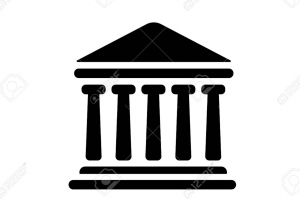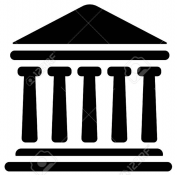
Towards Healthier Eritrea, A Better Country: THE ABC
Great attention was given to the name of this initiative. A name easy on the tongue was one small consideration. Hence, THE ABC Journey. The most important consideration was to capture in the name the aspirations of the journey. This is a journey Towards Healthier Eritrea, A Better Country. This is a journey of building the main democratic institutions and democratic culture.
Captured in the name is the challenge that awaits. “ABC” being the first three of English alphabets, they are often used to indicate an ab intio starting point. In terms of erecting a democratic government from the scratch, in a diverse country with no prior experience and with no pre-agreed ground rules, at a stage when agreements could be hard to come by, with anarchistic tendencies of Eritreans, that problem of creation ab initio is uniquely difficult. Eritrea will certainly face this big challenge in the near future. The stakes of failure are significant, and failure could lead to devastating consequences.
Adequate and timely preparation could hardly be negative. Hence, it is vital that we, Eritreans, use our time now and starts the ABC of a democratic government and culture. The journey of opposing the regime in power has started long time ago. Beyond opposing, there were few attempts at preparing for the future of Eritrea in terms of consensus and institution building. However, no significant progress has been achieved. The lack of progress is an indicator of the perils ahead.
Even after a good start, any given stage could be improved. There could always be a better country. Hence, this is a journey that could continue in perpetuity.
In this journey, we aspire to erect two of the three main pillars of any modern government (the legislature and the judiciary) and, through these, build consensus and democratic culture. In doing so, we aspire to learn in practicing a modern democratic government and prepare for the transition of the country. The achievements desired range from the modest to the lofty ones. At best, we could have a strong, government-like institution that could guide the opposition camp and help in filling the void. At worst, we could entirely fail. We do not aspire to fail. Yet, in this journey, even failure is an achievement. Failure to build consensus, for instance, will teach us, if any more lesson is needed, how difficult the near future of the country will be. Failure will teach us how difficult democracy is and to what extent we, Eritreans, even the best of us, are truly democrats.
If all Eritreans are for democracy, it could be said that there is a considerable level of consensus. However, democracy, as a notion of governance, is too undefined. Democracy have many forms and citizens have gone to war on the specific form of democracy they should have.
The problem of creation ab initio being real, it is hoped that critical majority of Eritreans accept the following very rudimentary positions. This mission is based on these assumptions.
That all Eritreans accept to live under a polity and that they are no longer in the state of nature (in complete anarchy). Living in an organized society requires commonly agreed rules; compromises in developing the rules and abiding by the rules so developed.
That all citizens could not be in government. Granted, the more citizens of the polity participate, the better democracy gets, and there are many ways for every individual to influence a democratic process. However, practical considerations dictate that not all Eritreans could be presidents, parliamentarians, judges or other higher officials. Hence, representative democracy is a significant part of democracy. If America, a country of 327 million population, is adequately represented by 535 individuals in its national congress, 100 Eritreans represent the Eritrean population (of 5 million roughly estimated) more than the U.S. population is represented in their congress. For simplicity in calculating percentages, it is recommended that the national legislature be constituted of 100 individuals, hopefully the wisest of us.
How do we get the best 100 of us? Thanks to technology, we could actually easily elect the best 100 of us in an open and transparent election. For obvious reasons, only Eritreans in the free world could participate in electing their representatives. However, all interested Eritreans are welcome. To this end, a constituent body of all diaspora Eritreans with KNOWN IDENTITY could be easily constituted. All interested Eritreans duly connected to the internet, regardless of their geographic location, could be in this constituent body. This constituent body could be constituted in a matter of weeks on a Facebook page and vote using the tools on that page. There is an assuring experience in this regard.
Based on some rudimentary observations, the body of interested Eritreans seems to be between 5k to 15k size. Using simplified election rules but with some consideration for representation of minorities and the disadvantaged, the most popular 100 could be identified openly. A national representative body elected by a constituent body or an electoral college of 5k to 15k big could be very acceptable in terms of fulfilling the representation requirement of democracy. Not perfect but in search of illusive perfection we should not overlook the workable.
The 100 would constitute the national legislature. The national legislature could then gradually work towards guiding current opposition endeavors and preparing for transition by building consensus, in the form of draft legislation, to help handle the transition. Such a body may not, of course, have a binding authority even though such authority could be conferred. At the very least, quality products from such a body could have a significant contribution in the near future. Authority is better when it is earned, than prescribed. In the same way samples, drafts, templates … are highly useful, the products of this legislature would be very helpful in the near future.
We need to tackle anarchist tendencies that tend to render democracy impossible. We need to submit to the decisions of those few whom we elect to lead us. Consensus may be the ideal way of identifying common grounds. Yet, it is the reality of political life that decision-making majorities are necessary when consensus is not attainable. Hence, even the 100 will not always be in agreement and it is necessary to live by mere majority of the 100.
This legislature would start with adopting its rules of procedure, including decision making quorums, majorities and other basics. Daunting but it will not get easier by deferring it to tomorrow.
Thus far not part of the opposition and understandably emasculated by the regime in Eritrea is another main branch of a modern government: The Judiciary. As much as consensus is not always possible for deliberative organs, amicable resolution of disputes, ideal as it may, is not always possible. It is human nature that there will be disputes/differences and not all disputes are resolved by dialogue. As much as a legislature needs decision-making formulas when consensus is elusive, a country needs judges when disputes are not amicably settled.
A significant part of many modern democracies is the willingness to remain bound by rulings of few judges (merely 5 of the 9 Justices in the case of the United States), rulings with far reaching consequences to the population. The highest court within the judiciary is often called upon to rule on constitutional issues that are deeply political. Eritreans have less experience with democracy. Living with few judges appointed for long-terms or for life is even more unfamiliar to Eritreans. One mission of this journey is, therefore, to start experiencing life under this necessary evil. Democracy has some elements of dictatorship and one comes in the form an independent judiciary.
In most constitutional designs, the legislature has a role in establishing the Judiciary. The legislature could play a role here. The Judiciary (only a supreme court) is the institution that could easily be sustained even in the financially weak position of the opposition camp. If the U.S. could do with 9 justices, 3 may be enough for Eritrea. It is hoped that the most qualified for this task could serve us well with their spare time and with their own tools and resources. The task would not be more demanding than writing research papers and books.
Having the executive branch is not unfamiliar with the Eritrean opposition camp. Executive bodies of various civic organizations have been tried, even though not at the level of an executive branch of a modern government (cabinet of ministers). A head of state/government and a cabinet of ministers seems unrealistic. With that, we could be into the territory of a government in exile. Not unheard of but the few such experiences need to be studied. However, the executive branch could be erected with minimalist goals in mind. Such goals could include conducting studies and developing recommendations for improvement in every ministry. A minister of social welfare, for example, would head studies aimed at developing broad plans of rehabilitation of the Eritrean society. Knowing the true magnitude of a problem alone may help.
We aspire to take on this journey at a level close to the reality Eritrea will face. To do so, this journey would need many participants. If not practical at this level, running a mock or an experimental government would give us an experience much closer to reality. A school of government, if you will.
Thank you.
Sponsors of the idea.
